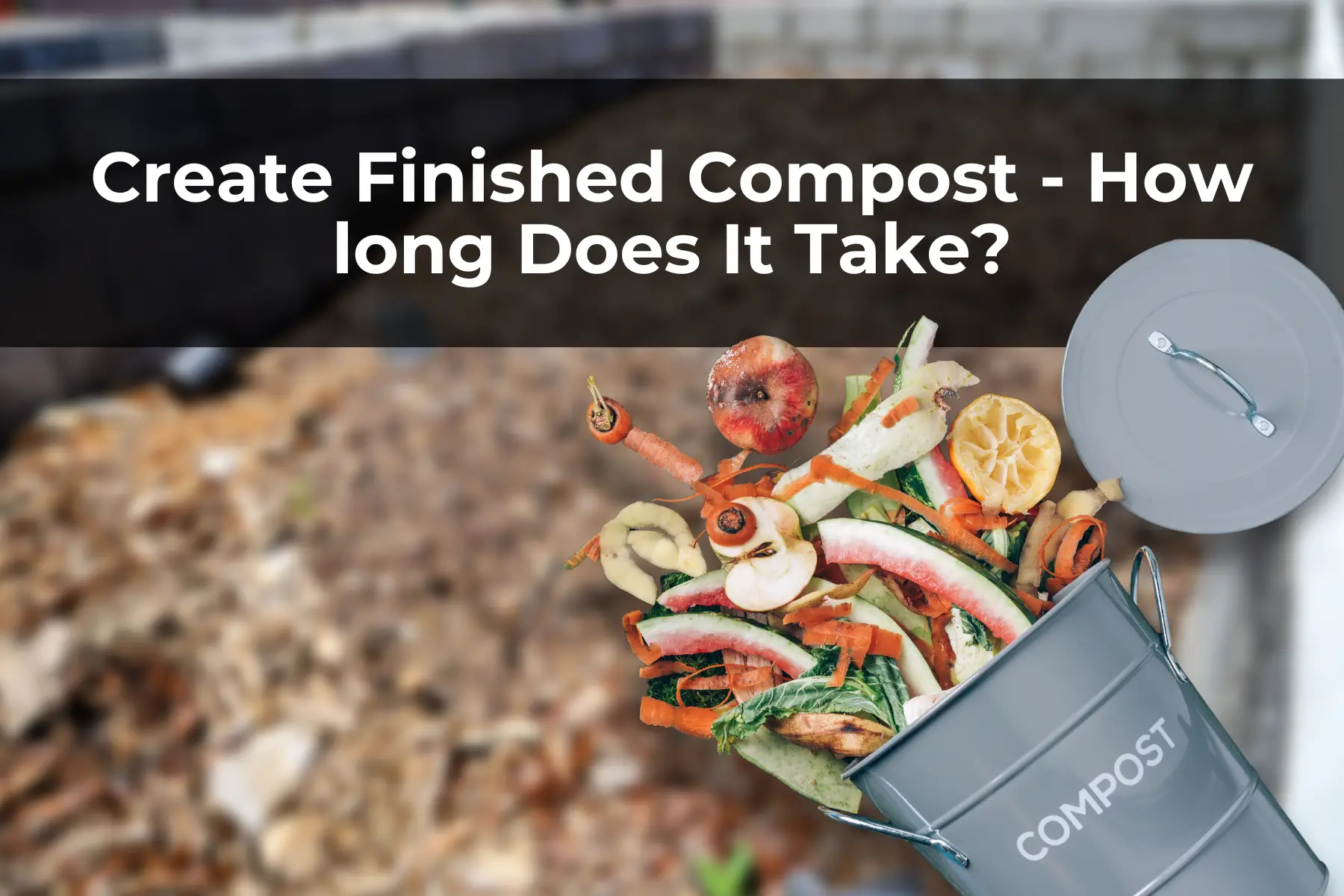Last Updated on April 16, 2024 by Real Men Sow
How long does it take to create finished compost? This is a common question I hear people asking who have just started composting. Well, simply put, it depends. There are several factors that will affect the speed at which your compost will break down.
It is enough to say that composting occurs faster when you create and maintain conditions that allow microorganisms to grow. However, composting is not perfect in many ways. Breaking down of materials may take from 8 to 12 weeks under ideal conditions (rarely achievable in a backyard environment) to several months. If you are an absentee composter, it may take even longer.
Create Finished Compost as Quickly as Possible
You only need four ingredients to create finished compost: air, water, nitrogen, and carbon. Your compost ingredients will quickly break down if you mix the browns and greens well. Maintain moisture in your pile like a sponge, but do not allow it to saturate. It will quickly break down if it is turned frequently and given moisture.
It’s microorganisms who are taking in the organic matter and making it compostable. Those organisms require a lot of oxygen before they can consume it. The aerobic decomposition process can slow down and eventually stop without oxygen. Since microorganisms need oxygen quickly, it is important to ensure that there is a constant supply.
Mixing Compost Material
Mixing compost material in a bin or pile adds oxygen to the soil and increases pore space. This allows air to flow through more easily. As oxygen is less available, compost material’s internal temperatures drop, and microbial activity declines. Correct this by turning the pile over again. This will increase oxygen levels and stimulate new, intense microbial activity. Temperatures will also rise if there are still organisms that have taken the material in its entirety.
However, if you don’t turn your pile frequently, or you don’t spray your pile with water regularly, it will still fall apart, but much more slowly. Your compost’s ability to break down will be affected even under ideal conditions. For example, woody material takes longer to decay because of the presence of lignin. This is a complex organic polymer that can be found in many plants’ cell walls. It makes them stiff and woody.
The Smaller the Better
The physical surface of any ingredient that is added to the compost will be affected by decomposition. To speed up the process, reduce the particle size before you add them to your compost. The faster they are broken down, the smaller the pieces. Sticks, twigs, and paper, as well as cardboard products, tend to be large at the beginning and take longer to break down. Before you toss each ingredient in your bin, make sure it is broken up, chopped up, or shredded. Although it is not required, it can make a huge difference.
Get Your Compost Pile to the Right Size
You can also get a faster rate of decomposition by following this advice. It is important to get your compost pile to the right size. A general backyard compost pile should be approximately 4’x4’x4′. This is the most practical and manageable size.
It’s easier to compost if it’s too large. Although this doesn’t always translate into slower composting in the backyard, it does often. If your pile is too small, it can cause microorganisms not to be able to efficiently break down the inputs. When your inputs are at the ideal level, you can stop adding new ingredients and create a new pile. We’ll get to that in a moment.

